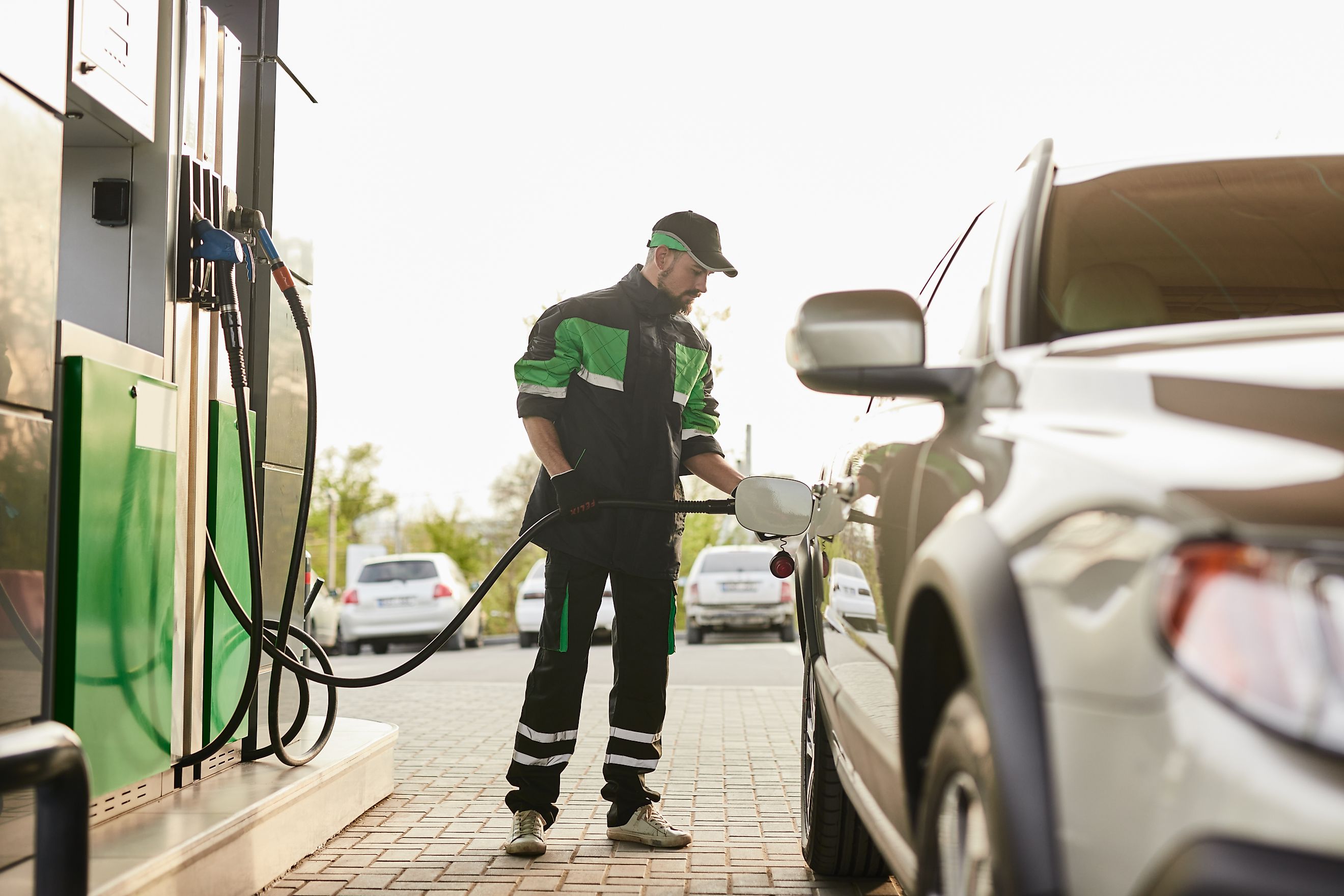
Why New Jersey is The Only State Where You Can’t Pump Gas
If you have ever driven through New Jersey, you probably noticed something unusual at the gas station. You pull up and instead of stepping out of the car to pump your own fuel, an attendant appears and does the job for you. For visitors, this feels like a throwback to a different era. For locals, it is simply everyday life.
New Jersey holds a unique distinction: it is the only state in the United States where drivers are not allowed to pump their own gasoline. The law has existed for decades, sparking curiosity and plenty of debate. Why does it exist? Where did it come from? And will it ever change? Let’s dive into the quirky history and ongoing story of New Jersey’s gas-pumping ban.
The Law That Keeps Drivers in Their Cars

The rule comes from the Retail Gasoline Dispensing Safety Act, passed in 1949. This law explicitly prohibits motorists from dispensing their own fuel. Instead, only trained gas station attendants are allowed to handle the pumps.
The original intent of the law was straightforward: safety. Lawmakers argued that gasoline was too dangerous for the general public to handle. At the time, fears of fires, explosions, and health risks from inhaling fumes were genuine concerns. Legislators also worried about customers improperly using equipment, which could lead to costly accidents.
Today, the law remains in place, making New Jersey the only state in America where full-service gas stations are not a choice but a requirement.
Why New Jersey Said “No” to Self-Service
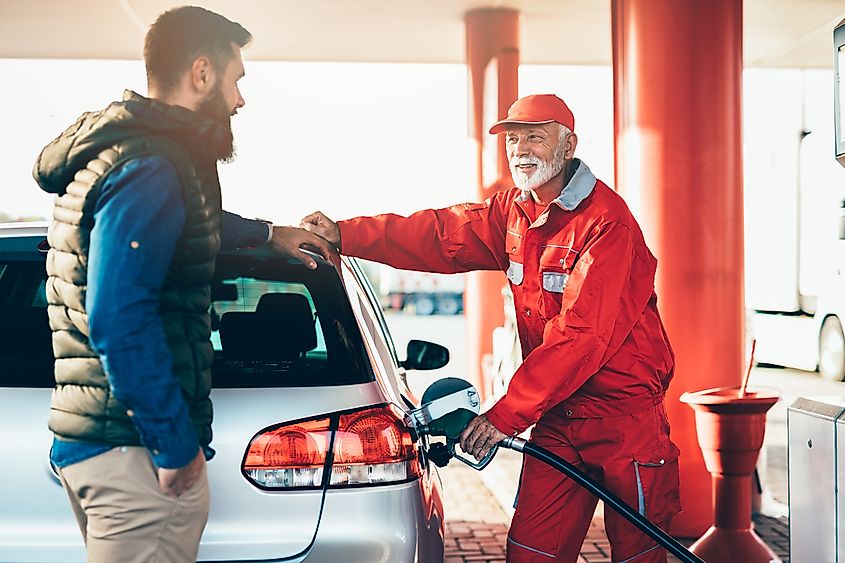
So what exactly convinced New Jersey to take such a firm stance against self-service fueling? There were several factors at play.
Safety First
In 1949, fire hazards were top of mind. Pumps were less technologically advanced, fumes were harder to control, and smoking was common around fueling stations. The state argued that trained attendants could reduce risks and ensure customers stayed safe.
Protecting Jobs
The law also helped secure employment. By requiring attendants, the state guaranteed thousands of jobs across gas stations. In a state with many small towns and suburban communities, these jobs became a steady source of income for workers.
Customer Service
Lawmakers emphasized the customer experience. Full-service meant drivers did not have to step out into rain, snow, or freezing temperatures. For many, this convenience became part of New Jersey’s identity.
What Makes New Jersey Different
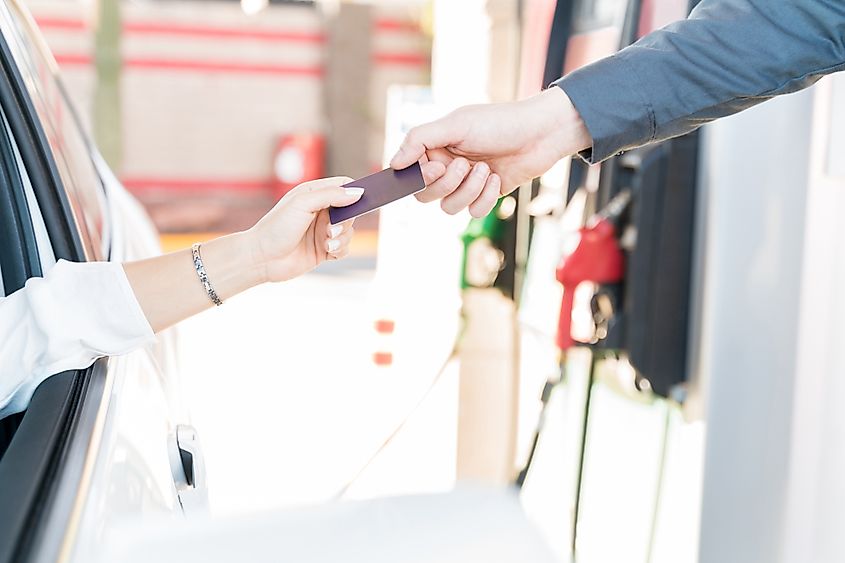
Oregon once had a similar law, but in 2023 it repealed the statewide ban on self-service. Today, most Oregonians can pump their own gas, leaving New Jersey as the last holdout.
That makes New Jersey’s gas culture one of a kind. Drive anywhere else in the country, and self-service is standard. In New Jersey, you stay in your car, and the attendant does the work.
The tradition has become so ingrained that for many residents, the thought of pumping gas themselves feels unnecessary or even unsafe.
How Residents Feel About It
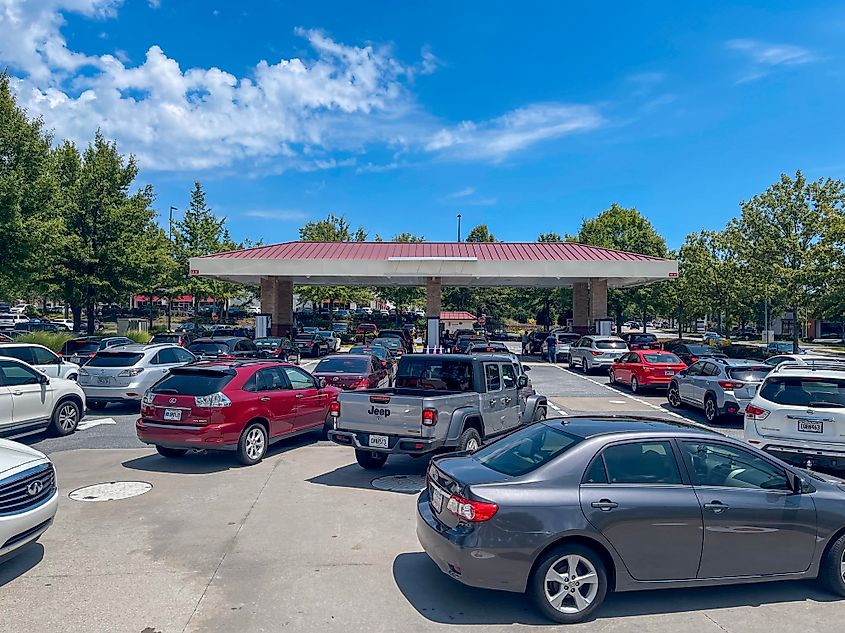
Ask New Jersey drivers about the rule, and you will get a mix of strong opinions.
-
Pro-ban voices: Many residents love the convenience. They appreciate not having to deal with pumps during bad weather and believe the system provides jobs and safer fueling.
-
Anti-ban voices: Others argue it is outdated. They point out that modern fuel pumps are designed with safety in mind, and nearly every other state manages fine without attendants. Some also say the law limits efficiency, leading to long lines during busy travel weekends.
Despite these disagreements, polls often show that a majority of New Jersey residents support keeping the ban. It has become a quirky badge of state pride.
The Cost Question
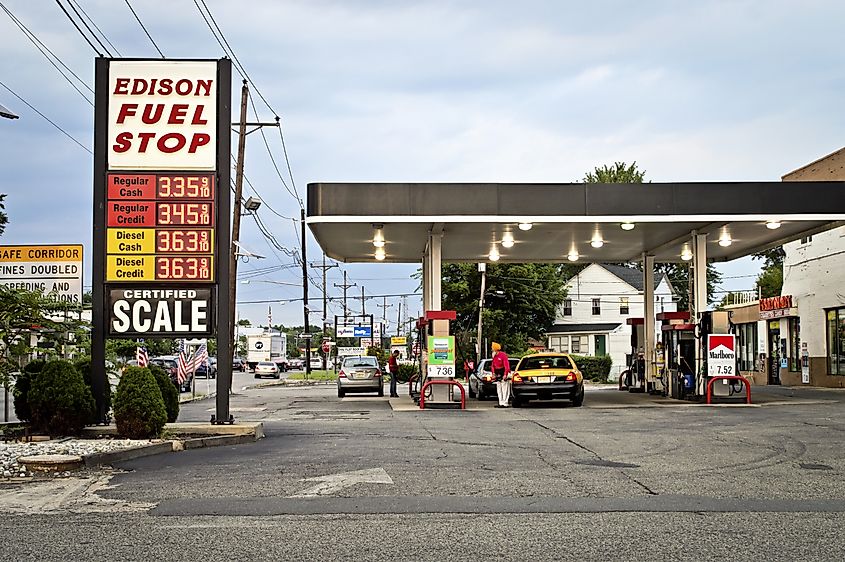
One of the biggest myths about New Jersey’s full-service law is that it makes gas more expensive. Surprisingly, this is not true. In fact, New Jersey often ranks among the states with the lowest gas prices in the country.
Why? Several factors:
-
New Jersey has lower gas taxes than many neighboring states.
-
Its location near major refineries keeps supply costs down.
-
Competition among stations helps keep prices competitive.
So while attendants are doing the work, the state has managed to maintain relatively low prices compared to places like New York or Pennsylvania.
Gas Station Attendants: A Vanishing Profession

Across the rest of the United States, gas station attendants have all but disappeared. Self-service fueling became widespread starting in the 1970s as technology improved and stations looked for ways to cut costs. Today, outside of New Jersey, attendants are rare except at high-end or specialty stations.
In New Jersey, however, attendants are part of the daily rhythm. For many high schoolers and young adults, it has long been considered a reliable first job. The role keeps alive a piece of Americana that vanished elsewhere decades ago.
Attempts to Change the Law

Over the years, lawmakers have proposed lifting the ban, especially during economic downturns or labor shortages. Supporters of repeal argue that allowing self-service could reduce wait times, modernize the state, and help gas station owners save on labor costs.
But every attempt has faced strong resistance. Voters often push back, citing convenience and safety. The cultural attachment runs deep. For many residents, pumping their own gas feels unnecessary, and they are happy to keep things the way they are.
As of 2025, New Jersey remains firm in keeping its rule, even as every other state allows self-service.
Fun Facts About New Jersey’s Gas Law
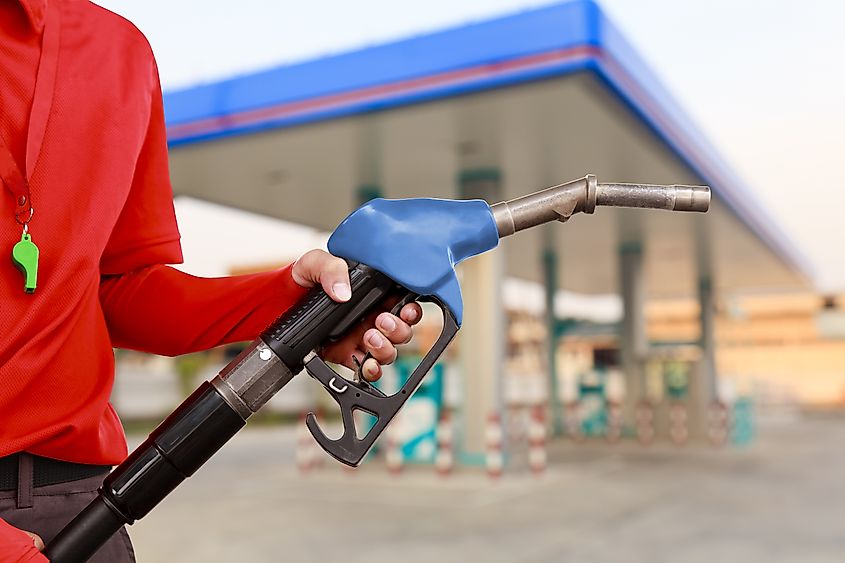
-
The law is so strict that motorists can be fined for attempting to pump their own gas.
-
Many out-of-state drivers are surprised when attendants rush out to stop them at the pump.
-
During major storms, attendants often work around the clock to keep gas lines moving.
-
The law has become a frequent topic of debate on social media, where locals defend it fiercely.
How Travelers Experience It
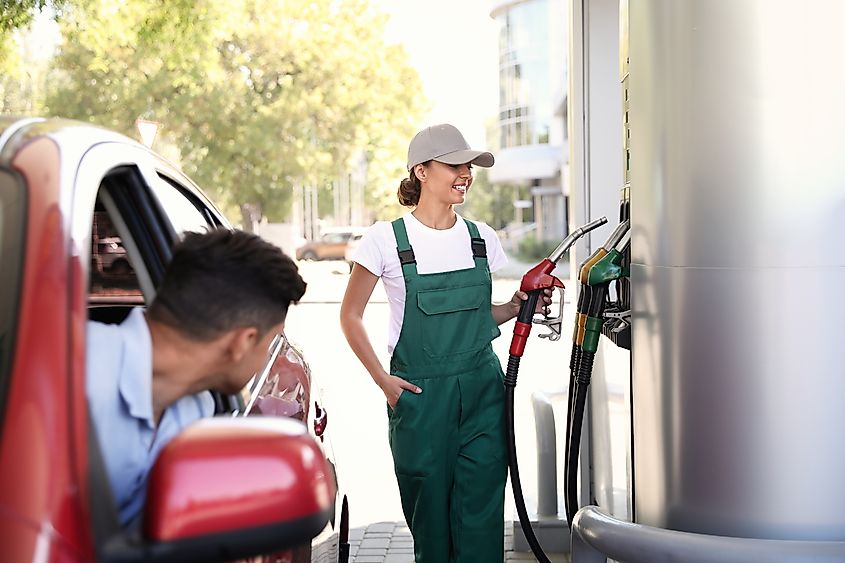
If you are visiting New Jersey, here is what to expect:
-
Pull up to the pump and remain in your vehicle.
-
Wait for the attendant to approach and ask how much fuel you want.
-
Pay by card or cash. Many attendants will take payment right at your window.
-
Relax. The attendant will pump the gas, replace the cap, and hand you a receipt.
For visitors used to pumping their own gas, this might feel strange at first, but it is second nature in New Jersey.
Comparing States: New Jersey vs the Rest
| State | Self-Service Allowed? | Notes |
|---|---|---|
| New Jersey | No | Only full-service stations by law |
| Oregon | Yes (as of 2023) | Previously partial ban on self-service |
| 48 other states | Yes | Drivers pump their own gas |
A Tradition That Sticks
So why is New Jersey the only state where you cannot pump your own gas? The answer lies in a mix of history, safety concerns, job protection, and state pride. What began as a safety law in 1949 has evolved into a cultural tradition that refuses to fade.
Whether you love it or hate it, the full-service system is part of what makes New Jersey unique. For travelers, it offers a glimpse into a past when gas station attendants were the norm across America. For residents, it is a convenience they are not willing to give up.
As long as the law remains on the books, New Jersey will continue to stand alone in preserving a practice that blends nostalgia, practicality, and local pride. The next time you fill up in the Garden State, enjoy the rare experience of staying in your car while history plays out at the pump.







